In observance of the Labor Day holiday, the IAMSE Administrative offices will be closed on Monday, September 3. We will resume normal hours on Tuesday, Spetember 4.
News
The best of the Webcast Audio Seminar Series at your fingertips
Did you know that we archive each season of the Webcast Audio Seminar series? Reaching all the way back to Winter 2011, you can search the topics, speakers and presentations in our webcast series greatest hits collection.
The Webcast Audio Seminar archives are located on our website under the Events tab as Web Seminars. Here, you will be able to search the archival or browse by year and series.
If you have any issues accessing the archives, please just let us know at support@iamse.org.
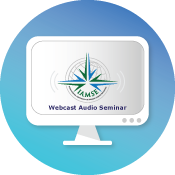 The Fall WAS series is BACK beginning Thursday, September 6. Join us at 12PM Eastern for a deeper look at:
The Fall WAS series is BACK beginning Thursday, September 6. Join us at 12PM Eastern for a deeper look at:
• The Current State of Technology in Medical Education
• The Role and Value of Instructional Designers
• Using Social Media as an Educational Tool
• New Opportunities Afforded by Virtual Reality and Augmented Reality
• Realizing the Promise of Big Data: Learning Analytics in Competency-Based Medical Education
And the best part is Student Members are FREE!
IAMSE on the Road at AMEE 2018
Association for Medical Education in Europe
August 25 – 29, 2018
Basel, Switzerland
The 2018 Association for Medical Educatio in Europe (AMEE) Annual Conference will be taking place in Basel, Switzerland from August 25 – 29, 2018. The IAMSE booth will be present at the conference to exhibit, so if you plan on attending this meeting, don’t forget to swing by and say hello! During the Meeting you will have two opportunities to see IAMSE in action.
Monday, August 27 Aviad Haramati, Peter GM de Jong, Neil Osheroff, Kelly M Quesnelle, Dujeepa D Samarasekera and President Richard C. Vari will be presenting “The role of the Biomedical Sciences in Teaching and Learning Medicine in the 21st Century” a Symposium located in 4D.
IAMSE will be hosting a Meet and Greet from 12:30 – 1:30 on Monday, August 27 before the Symposium.
We look forward to seeing you in Switzerland! For more information on the AMEE Meeting, please click here.
IAMSE Connects #3
Connecting with the Annual Conference

We had a great time in Nevada in June! Mark your calendars for the upcoming meeting in Roanoke, VA, June 8-11, 2019.
Connecting with our Members
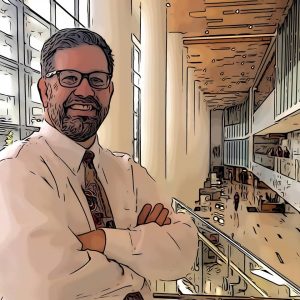 Our association is a robust and diverse set of educators, researchers, medical professionals, volunteers and academics that come from all walks of life and from around the globe. Each month we choose a member to highlight their academic and professional career, and see how they are making the best of their membership in IAMSE. This month’s Featured Member is Larry Hurtubise, MA.
Our association is a robust and diverse set of educators, researchers, medical professionals, volunteers and academics that come from all walks of life and from around the globe. Each month we choose a member to highlight their academic and professional career, and see how they are making the best of their membership in IAMSE. This month’s Featured Member is Larry Hurtubise, MA.
Christopher Burns, PhD, NRAEMT has been promoted to full professor in the College of Medicine at Roseman University of Health Sciences in Las Vegas, Nevada. He is Professor of Biomedical Science and Director for Case-Based Learning.
Dr. Michiel Schokking recently became a Junior Principal Lecturer (JPL) 2019-2021 in Radboudumc, Nijmegen, Netherlands. In 2017 he finished his Fellowship Program at IAMSE, which helped him to obtain the mentioned JPL at his institution.
Kerstin Höner zu Bentrup, PhD was recently awarded the Presidential Award for Graduate and Professional Teaching at Tulane University. The President’s Awards for Excellence in Teaching were established in 2000 and have been given to full-time faculty members who have a sustained and compelling record of excellence in teaching and learning and an ongoing commitment to educational excellence.
Dr. Sateesh Arja received the senior fellowship awarded by Advance Higher Education (formerly called Higher Education Academy), the UK in April 2018. This senior fellowship consolidates the personal development and evidence of influencing other colleagues’ professional practice in the higher education career. This fellowship also demonstrates the commitment to teaching, learning, and the student experience, through engagement in a practical process that encourages research, reflection, and development.
Melissa Murfin, PA-C, PharmD, BCACP was promoted from assistant to associate professor this year at the Elon University Department of Physician Assistant Studies.
Connecting with the Committees
Organizational Development Committee
The Organizational Development Committee has entered a partnership with the Finance Committee and will work to enhance funding for travel scholarships, grant support, and other needs of the organization.
Student Professional Development Committee
The Student Professional Development committee promotes student inclusion in IAMSE and student success outside the classroom. To accomplish these goals, the committee oversees activities that are primarily directed toward student participants occurring at the annual conference and throughout the year. Specific areas of emphasis include enhancing research and scholarship, networking, and career building opportunities for students. The committee works closely with students and uses their input and feedback to establish our goals and guide activities to accomplish them.
Membership Committee
The Membership Committee has developed 3 goals to fulfill its charge of increasing and retaining members and evaluating the needs of members: 1) Continue to enhance PA educator involvement and membership, 2) Pilot an ambassador program to increase membership from countries that are underrepresented in the IAMSE membership, and 3) Send a survey to assess the needs of our members. Stay tuned for updates on these initiatives, and please respond to the upcoming survey!
WAS Committee
The WAS Committee is busy putting the finishing touches on the Fall series, Evolution and Revolution in Medical Education: Technology in the 21st Century, which begins Thursday, September 6 at 12pm EST. Planning is in full swing for both the Winter and Spring series. Stay tuned!
We know you have colleagues who would benefit from IAMSE membership! Encourage them to join by having them visit our members only site.
Connecting with the Journal
Looking for a great place to publish your scholarly work? Connect with Medical Science Educator, the journal of IAMSE and on Facebook.
Connecting with the Website
Don’t forget to keep your member profile up-to-date. If you haven’t updated in a while, take a minute to do so when you log in here!
Don’t miss the Biomedical Sciences track at APMEC 2019

In 2018 IAMSE supported the foundation of the Asia-Pacific Biomedical Science Educators Association (APBSEA), a network of enthusiastic basic science educators from several countries in the Asia-Pacific region coming together to share experiences and issues pertaining to health professions education and beyond. Both organizations are pleased to announce the first-ever Biomedical Science (BMS) Track at the 2019 Asia Pacific Medical Education Conference in Singapore. The track consists of 3 main activities:
- Pre-conference Workshop on “Developing Fair and Holistic Approaches to Evaluate Biomedical Science Educators”
- Panel Discussion on “Supporting Biomedical Science Educators: A Matter of Self-Esteem, Identity and Promotion Opportunities”
- Symposium on “Integration of Biomedical Science and Clinical Education: How to Make it Work?”
A big thanks to the APBSEA and IAMSE members for actively contributing to these sessions and making them possible. If you are interested in attending the APMEC meeting, please visit the conference website.
IAMSE Featured Member: Larry Hurtubise
Our association is a robust and diverse set of educators, researchers, medical professionals, volunteers and academics that come from all walks of life and from around the globe. Each month we choose a member to highlight their academic and professional career, and see how they are making the best of their membership in IAMSE. This month’s Featured Member is Larry Hurtubise, MA.

While I am relatively new to IAMSE I have been collaborating professionally with IAMSE members for years. IAMSE and the Web Audio Seminar Series (WAS) have offered me opportunities for professional growth in three tangible ways. One is my professional interest is how to meaningfully connect isolated health sciences educators with leading educational thinkers, second is that the topics covered in the WAS augment my own professional development, third, and most importantly is the passionate educators and mentors I have met as a member of the IAMSE community.
As Chair of the WAS committee I am grateful for our committee which works hard to develop a series which address current and pressing topics in health science education. These webinars feature outstanding speakers and our team is always piloting new technologies to improve engagement with participants. I have also benefited professionally from the series and its presentations on topics like competency based medical education, wellness, and medical education research. I frequently reference the series recordings and blog.
Over the years, I have found IAMSE members to be thoughtful and conscientious. As a past Chair of the Generalists in Medical Education I have gotten to know Peter du Jong and Julie Hewett. I have presented at conferences with members like Bill Jefferies and Giulia Bonaminio and have worked on grant funded projects with Machelle Linsenmeyer and Katie Hugget. Recently I have gotten the opportunity to learn from Rick Vari and Nehad El-Sawi, past chairs of the WAS committee who are still contributing to the committee and IAMSE. These opportunities for continued professional growth make me grateful for my association with IAMSE members in the past and excited for the future!
Have you registered for the Fall Webcast Audio Seminar Series “Evolution and Revolution in the Medical Education: Technology in the 21st Century“? Reserve your spot for this semester’s seminal and exciting look at the changes in medical education.
IAMSE Manuals Available for Purchase
As you may know, IAMSE has published two how-to manuals: the How-To Guide for Active Learning and the How-To Guide for Team-Based Learning as well as a Japanese Translation of the How-To guide for Team-Based Learning.
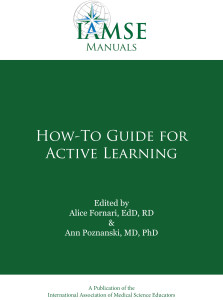 How-To Guide for Active Learning: This manual is a compilation of teaching strategies in active learning to adapt to your own large group settings. Each chapter is a specific description of a strategy written by authors who are experienced in using the strategy in a classroom environment with students. The Manual chapters are designed to be accessible and practical to the reader. The manual is edited by Alice Fornari and Ann Poznanski.
How-To Guide for Active Learning: This manual is a compilation of teaching strategies in active learning to adapt to your own large group settings. Each chapter is a specific description of a strategy written by authors who are experienced in using the strategy in a classroom environment with students. The Manual chapters are designed to be accessible and practical to the reader. The manual is edited by Alice Fornari and Ann Poznanski.
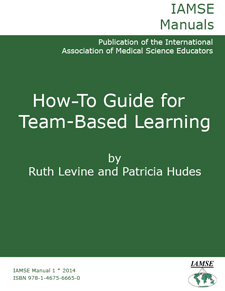 How-To Guide for Team-Based Learning: This “How-To” Guide for Team-Based Learning is a manual that provides an overview of the fundamental components TBL and serves as a blueprint for instructors considering using this technique. The manual also identifies factors that will facilitate or sabotage a successful implementation of TBL. Authored by Ruth Levine and Patricia Hudes, both internationally recognized experts in the field of TBL.
How-To Guide for Team-Based Learning: This “How-To” Guide for Team-Based Learning is a manual that provides an overview of the fundamental components TBL and serves as a blueprint for instructors considering using this technique. The manual also identifies factors that will facilitate or sabotage a successful implementation of TBL. Authored by Ruth Levine and Patricia Hudes, both internationally recognized experts in the field of TBL.
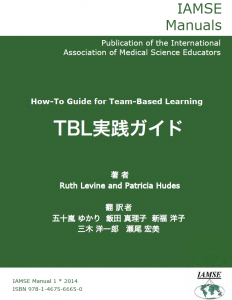 How-To Guide for Team-Based Learning Japanese Translation: IAMSE is proud to announce that we now have a Japanese translation of this “How-To” guide! The How-To Guide for Team-Based Learning was authored by Ruth Levine and Patricia Hudes and translated by Yukari Igarashi, Mariko Iida, Yoko Shimpuku, Yoichiro Miki, and Hiromi Seo.
How-To Guide for Team-Based Learning Japanese Translation: IAMSE is proud to announce that we now have a Japanese translation of this “How-To” guide! The How-To Guide for Team-Based Learning was authored by Ruth Levine and Patricia Hudes and translated by Yukari Igarashi, Mariko Iida, Yoko Shimpuku, Yoichiro Miki, and Hiromi Seo.
If you’d like to purchase a digital copy of one or both of these manuals, please visit the IAMSE store here. Each manual is $5 for members or $10 for non-members. Please note: These manuals are for individual use only.
#IAMSE18 – Call for Focus Sessions – Deadline September 15
James Pickering, PhD.
Chair, 2019 Program Committee
#IAMSE18 – Featured Member: Giulia Bonaminio
Our association is a robust and diverse set of educators, researchers, medical professionals, volunteers and academics that come from all walks of life and from around the globe. Each month we choose a member to highlight their academic and professional career, and see how they are making the best of their membership in IAMSE. This month’s Featured Member is Giulia Bonaminio, PhD.
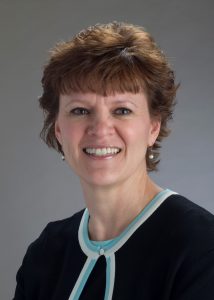
I remember very clearly the day in November of 1992 when I walked into the AAMC Annual Meeting session entitled “GEA Special Interest Groups: Basic Science”. I had just joined the University of Kentucky College of Medicine after a post-doctoral fellowship in medical genetics. This was a new career as a medical educator working on an exciting curriculum revision with basic science faculty. From involvement in this special interest group to the Basic Science Education Forum to modern day IAMSE, this community of educators has been my professional home.
Twenty-five years later I am the Associate Dean for Medical Education and a Professor at the University of Kansas School of Medicine and can honestly say that I have grown up in this organization. I have learned from and collaborated with experts in all fields of health professions education. As I reflect over these years of involvement with IAMSE,
four important areas come to mind: friendship, mentorship, leadership, and scholarship. From annual meetings to serving on committees, I have established numerous connections with educators from around the world, many of whom I am honored to call my friends. I was also fortunate to be mentored by very distinguished individuals, including Roger Koment, IAMSE’s Founder. It was with Roger’s encouragement that I became involved with the leadership of the organization and served as Board Member, Vice President, and President. IAMSE has provided opportunities to conduct medical education scholarship as well as the venues for dissemination. These positions and activities not only opened doors in the world of academic medicine, they contributed to professional advancement and promotion.
I look forward to continuing to learn from as well as serve this organization which has given so much to me and others. I encourage all members to stay involved or become involved in the numerous opportunities and activities that IAMSE provides including committees, web seminars, annual meetings, and Medical Science Educator. I cannot imagine what my career would have been like without IAMSE.
Congratulations to the 2018 IAMSE Educational Grant Winners
Dear Colleagues,
The International Association of Medical Science Educators (IAMSE) wishes to encourage and support scholarship in medical science education and funds multiple research grants every year. At the 2018 annual meeting, four faculty grants were given totalling $17, 838. With the support of ScholarRx, IAMSE also awarded two student grants totalling $4,965. In addition, the Principal Investigator of each funded project will be awarded an additional $1,500 travel award to present the results of their grant research at a future IAMSE meeting.
Faculty Awards
Tania Jenkins
A Qualitative Investigation of Female Resident Physician Burnout in Frontline Specialties
Aaron Marshall
Medical Nutrition Therapy Immersion to Enhance the Learning and Use of Nutrition Counseling
Janet Trial
Pediatric Core Clinical Skills Objective Clinical Skills Exam
Joanne Willey
An Analysis of Medical Educators’ Needs in Promoting Self-Directed Lifelong Learning
Student Awards
Maimi Al-Sabiry
Professional Identity Formation in GP Residency
Jan Willem Grijpma
Student preferences for learning from tutorials: A Q-methodological study
Congratulations to this year’s grant award winners. We are eager to see and hear about your findings. More information regarding IAMSE Educational Grants, including information on submitting yourself for consideration, can be found at our website.
Thank you,
Joe Stein
IAMSE Educational Scholarship Committee
Congrats to the Distinguished and Early Career Award Winners!
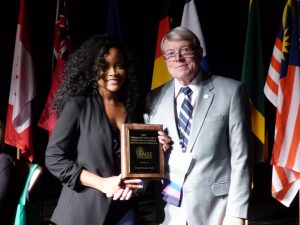
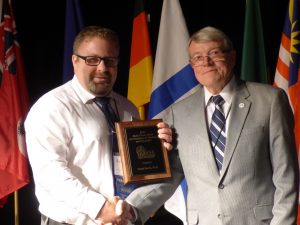
Nicole Woods David Harris
Dear Colleagues,
On behalf of the Educational Scholarship Committee, I’d like to congratulate Nicole Woods and David Harris on receiving the Distinguished Career Award and Early Career Award, respectively.
The Distinguished Career Award for Excellence in Teaching and Educational Scholarship recognizes an IAMSE member who has a distinguished record of educational scholarship, including educational research and dissemination of scholarly approaches to teaching and education. Candidates should be Professor, Associate Professor, or equivalent rank, or have demonstrated greater than 10 years of educational scholarship. Additionally, candidates must have a significant record of engagement within IAMSE.
The Early Career Award for Excellence in Teaching and Innovation honors an IAMSE member who has made significant innovations to the field in the short time they have focused their careers toward enhancing teaching, learning and assessment. Candidates for this award will be Assistant Professor or equivalent rank, or have demonstrated less than 10 years of educational scholarship.
Congratulations to Dr. Woods and Dr. Harris on being honored at the 22nd Annual IAMSE Meeting in early June. Good luck to both of you in all your future endeavors.
Thank you,
Joe Stein
Chair, Educational Scholarship Committee
Congratulations to Shaadi Fouad Elswaifi – 2018 IAMSE Outstanding Reviewer
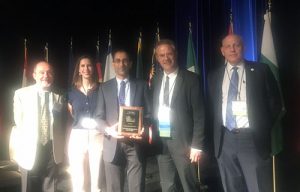 Dear Colleagues,
Dear Colleagues,
Shaadi Fouad Elswaifi received the International Association of Medical Science Educators (IAMSE) 2018 Outstanding Reviewer Award during the Association’s annual meeting in Henderson, NV (USA).
This award is a recent initiative of the Editorial Board of Medical Science Educator, the peer-reviewed journal of IAMSE. The award is presented annually to recognize one of the journal’s reviewers for his/her outstanding peer review efforts over the past year. The recipients are selected based on several criteria including reviewer performance and delivering the reviews in a timely manner.
Congratulations Dr. Elswaifi!
Thank you,
Peter de Jong
Chair, IAMSE Editorial Board